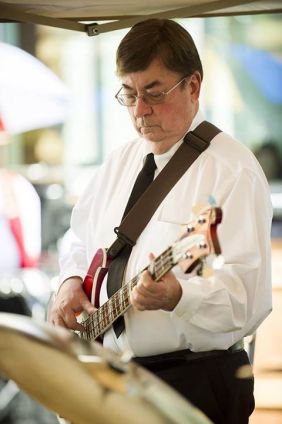I have been spending evenings watching the television series "Nashville" on HuluPlus.com. The series is basically a soap opera with guitars, set in Nashville, and features the struggles and conflicts of Country singers and musicians. As a series, it isn't bad, and I am enjoying it. The major characters include Deacon Claybourne, a recovered alcoholic, his niece Scarlett O'Connor, a cute little blonde with a great voice, his former lover and mythical Country megastar, Rayna James, and a young and ruthless artist Juliette Barnes. Rayna is a lovely older woman, 40is, and Juliette is a 20 something, smoking hot blonde. Juliette is perpetually angry, horny, demanding and rude and tends to be a one-dimensional character. Deacon is the chief male protagonist of the series, a likeable guy and constant fugitive from a shave. He is by far the most interesting and believable character, though like everyone else, is subject to occasional fits of overacting.
I began watching the series because it was ostensibly about music, and there is a lot of singing and playing. Most of the music, however, is utterly forgettable and as substantial as cotton candy. It isn't very Country either. Some scenes are just not credible -- Rayna strutting and posing on a stage while a large audience is going wild, jumping up and down, cheering and raising their arms, until Rayna starts singing another of her utterly forgettable tunes in her very ordinary voice. At that point the audience really gets excited. ACTING!!
It has been said that great songs have a "hook," some repeated theme that makes the song compelling. These songs generally do not have that hook. Furthermore, the lyrics of these songs are generally vacuous and silly, with a few exceptions.
Rayna is pretty and stays on key, but her voice is ordinary. Same for Juliette. Scarlett is the only singer who actually has an interesting voice, though most of her songs are also mediocre. With better material, she could really be a star.
Like most soap operas, there are subplots and background drama, a host of characters involved therein, while the latter play musical beds, and everybody winds up banging everyone else, sooner or later. My interest in the series is on the wane. I'll look for something better.
Update: I have continued watching into the second year episodes. The songs have gotten better, and Rayna and Juliette sing better than my first impression of them. However, there is a sameness to the each episode that I find annoying. Musical beds continues, with everyone banging everyone else, and everyone cheating on their mate, with absolutely no romantic relationship lasting more than an episode or two. In this fictional world of "Nashville," marriage is indeed an obsolete institution.


